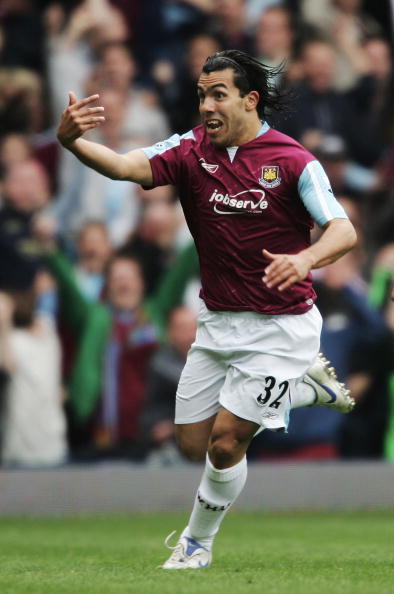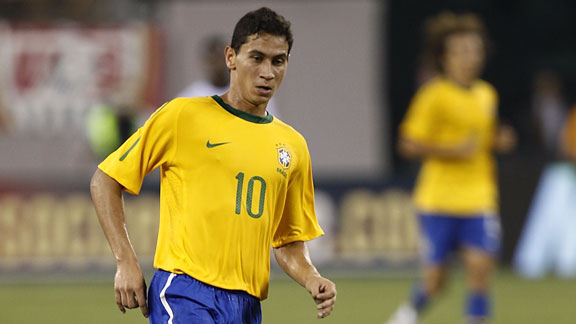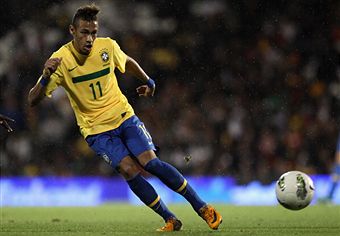By David Gold at the Dolder Grand in Zurich
November 7 – Marcos Motta, partner of the Brazilian law firm, RBMF Advogados, has defended the third party ownership structure that exists in Brazil which allows venture capitalists to invest in players and receive a portion of their transfer fees when they are transferred.
At RBMF, Motta has been involved in major transfers, including that of Ronaldinho from AC Milan to Flamengo in 2010, and counts the Santos superstar Neymar (pictured) and the Brazilian Football Confederation among his clients.
He is also a former director of Flamengo, so has particular insight into the transfer dealings and financial state of the country’s clubs.
He says the third party ownership practise is very different from most of those in Europe, but defended its use in Brazil.
The Carlos Tevez saga brought the realities of third party ownership to the England for the first time, when the Argentinian international signed for West Ham United in 2006 in a deal which also saw Javier Mascherano move with him from Corinthians.
Tevez, however, was part owned by his advisers, a consortium led by Kia Joorabchian, and he played a crucial role in helping the Hammers to recover from a near terminal position in the Premier League’s relegation zone to stay in the division at the expense of Sheffield United.
The Yorkshire side then began a lengthy legal battle, originally claiming £45 million in damages, before accepting an out of court settlement.
In Brazil, though, the third party ownership practise is common and it allows clubs to afford to keep players, as well as meaning that talented youngsters have financial backing behind them from investors that enables the country to develop more youngsters.
Motta said that FIFA rules did not prevent such ownership structures, only the influence of third party owners on issues such as player selection.
He also said that the best 10 players in Brazil, including Neymar, are owned by third parties.

“[The Tevez saga] is the first time they heard about third party ownership in England,” Motta said at an International Football Arena conference here.
“It is important for clubs in South America as it is creates a market.
“It helps create new revenues, it is a free market.
“Third party ownership is only harmful when they start to influence the game.
“FIFA does not ban third party ownership, only third party influence.”
Motta also said the rapid growth of the Brazilian economy, which is forecast to expand at a rate of five per cent a year until 2014 – when they host the World Cup – should ensure a bright future in the medium term.
He says though, that the new individual television rights deals – which Brazilian teams will be negotiating in the coming years – risk destroying the competitive nature of the domestic league.
“The horizons are bright for the next 10 or so years.
“We expect growth on a yearly basis and the big challenges are the TV rights, which are negotiated on an individual basis.
“There is a risk where you can have the likes of Flamengo and Corinthians with big stars whilst the others are behind.”
It is a big risk too, as with just five rounds of games left there are five teams left in the running to lift the Brasileiro title: Corinthians, Vasco de Gama, Fluminense, Flamengo and Botafogo are separated by three points.
Motta also spoke about the decreasing number of transfers involving Brazilian players leaving for Europe, with the increased salaries on offer keeping top players in the country for longer, something he says shows the strength of the game in the country.
Neymar is a prime example of this ability to resist European teams’ financial might, as he is paid €5 million euros a year at, comparable with top European players, by his club Santos.
The Copa Libertadores winners have kept the player from the likes of Real Madrid and Barcelona, as well as resisting overtures for their promising playmaker Paulo Henrique Ganso (pictured).

Along with Leandro Damião and Lucas, they represent the future of Brazilian football, and the quartet are all still competing domestically with their club sides able to resist big offers from European powers.
Why is this? “The raising of salaries, and proper exploitation of player’s image rights, new sponsorship rights, increase of TV rights,” says Motta, who points to the fact that Corinthians can now boast the fifth most valuable shirt sponsorship deal anywhere in the world.
Brazil is the third biggest shirt sponsorship market in the world, Motta adds, in large part thanks to a number of big players returning to South America from Europe.
Corinthians’ financial power has increased significantly since they brought Ronaldo back to the country, and though he has now retired, a number of other stars have followed him back to Brazil, including Luis Fabiano, Adriano and Ronaldinho.
Contact the writer of this story at zib.l1743667053labto1743667053ofdlr1743667053owedi1743667053sni@d1743667053log.d1743667053ivad1743667053
Related stories
October 2011: Football on the up as boys from Brazil return home in the boom-time
